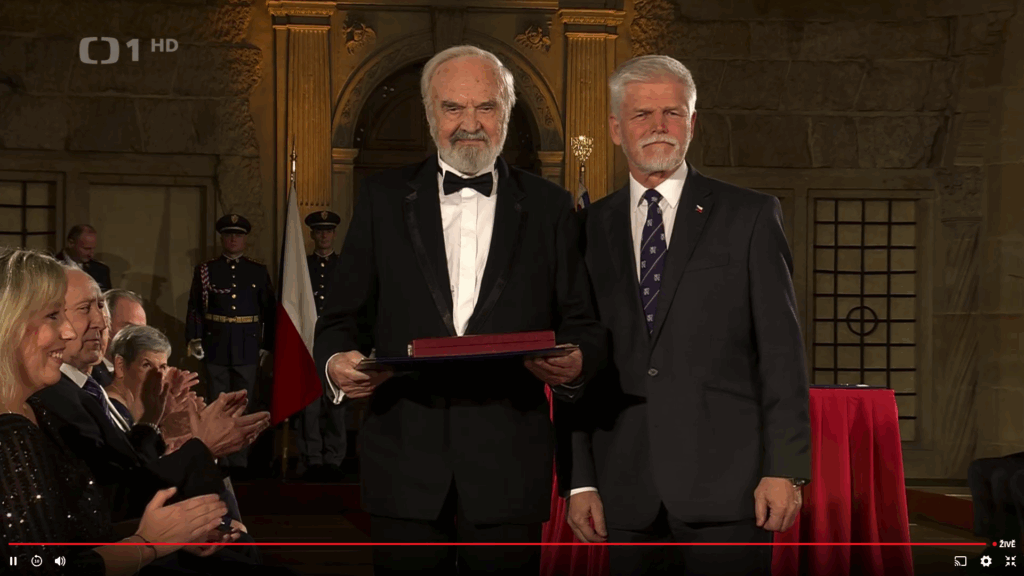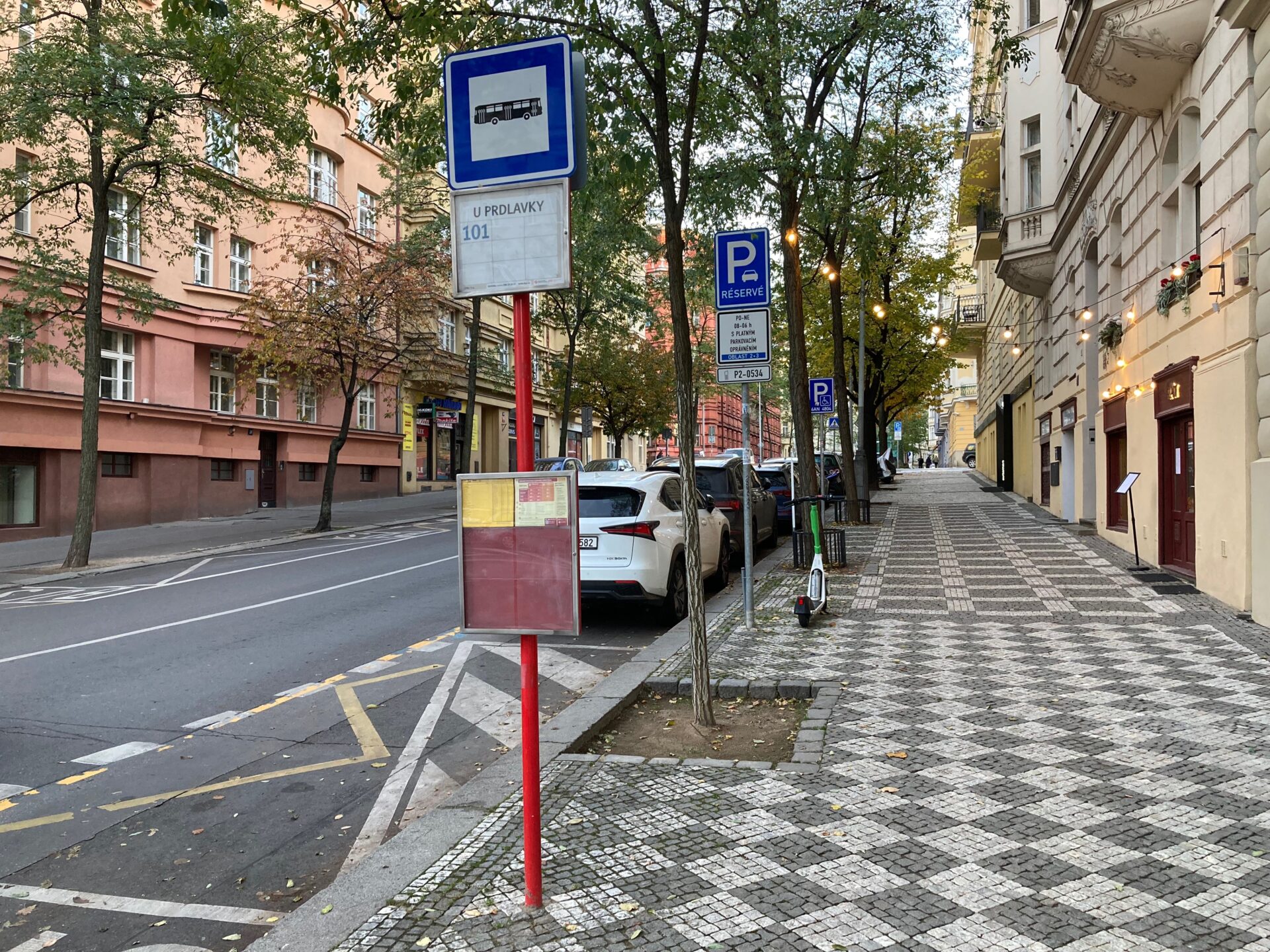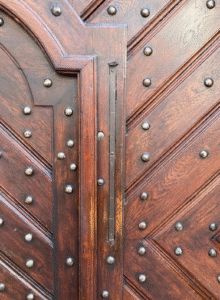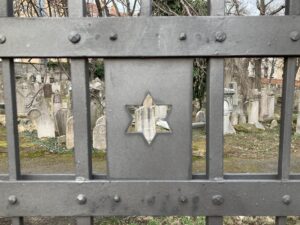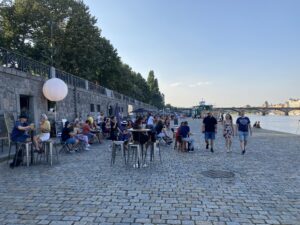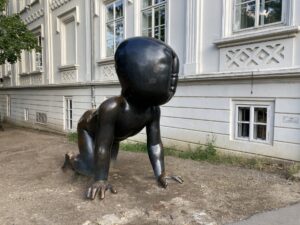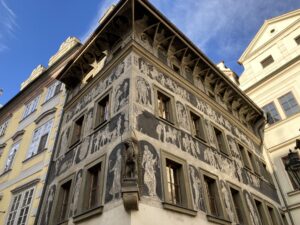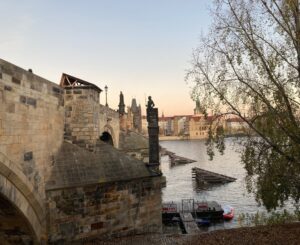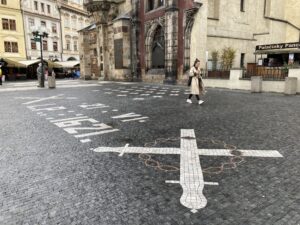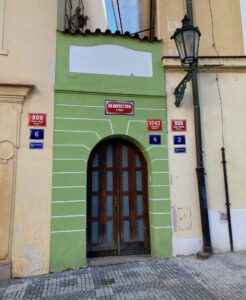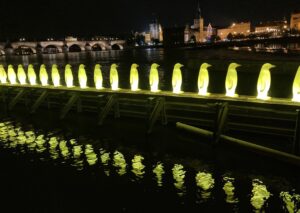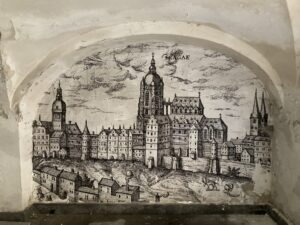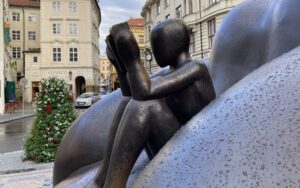In 2005, Czechs voted for the Greatest Czech. In the first round, they could nominate anyone; in the second round, they chose from a hundred of the most successful ones. However, after the first round, a problem arose because many people nominated Jára Cimrman. After an assessment by the BBC, which owns this television format, Jára Cimrman was eliminated from the competition. The gold, silver, and bronze medals were then symbolically awarded to three great past, present, and recent politicians. Namely, King Charles IV. (1316-1378), President Tomáš Garrigue Masaryk (1850-1937), and President Václav Havel (1936-2011).
Jára Cimrman, although it was certain that he would have taken one of the top spots, was ultimately unable to compete. For a simple reason – because he is only a fictional character. Nevertheless, many places in the Czech Republic claim that Jára Cimrman stayed there and they have a monument to him there. In South Bohemia, there is a forest railway stop in Kaproun, where JC was thrown from a train. In Vesec near Sobotka, there’s a school where JC taught before the First World War. The JC Lookout Tower is in the village of Březová nad Svitavou. In Lipník nad Bečvou, they have the Jára Cimrman Embankment, although no river is nearby. However, the seashore is painted on the alley’s walls, which expresses Jára Cimrman’s effort to allow Czechs living on land a beautiful view of the sea without traveling a long time to get to the sea.
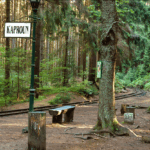
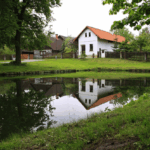

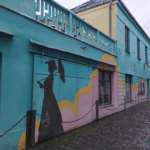

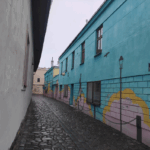
Jára Cimrman was a playwright, poet, teacher, traveler, philosopher, and man of many other professions. He was also a famous inventor. One of his most interesting inventions is the five-stroke engine, where he added a fifth phase to the usual phases of an “ordinary” engine. His engine, therefore, ran in the rhythm of intake, compression, explosion, exhaust, and rest.
Perhaps the most telling sign about the Jára Cimrman phenomenon is the plaque on the wall of the Czech Radio building in the Karlín district of Prague:
“Vienna native Jára Cimrman was born here.”
This is because the character of the fictional titan Jára Cimrman first appeared on September 16, 1966, in the humorous program Non-alcoholic Music Wine Bar at the Spider on Czechoslovak Radio. The authors of this fiction were Jiří Šebánek and Zdeněk Svěrák.
The two, along with colleagues Miloň Čepelka and director Ladislav Smoljak, decided to found a theater. That was when an original concept was born: the first half of the performance was a scientific lecture, and the second half was the drama itself. The first production was Act, first performed on June 19, 1967, for a circle of relatives and friends. The first official performance for an audience took place on October 4, 1967.
None of them knew then what a phenomenon this relatively simple joke would become. When Zdeněk Svěrák was at home telling his wife what they would do differently next time, she asked him with a phrase that later became popular: “Zdeněk, do you want to play it again?”
The leading figures of the theater eventually became Zdeněk Svěrák and director Ladislav Smoljak. The theater, which bases its repertoire on kind and intelligent humour, has gained immense popularity. One reason is that Zdeněk Svěrák, himself a teacher by profession, once characterised their work as: “It is theater for people who paid attention in school.”
The Czechs are quite a theatrical nation – 14% of people go to the theater at least once every two months. Tens of thousands have become amateur “cimrmanologists” who can recite their plays by heart. Until the introduction of online ticket sales, it was common for people to queue in front of the theater the day before the next month’s sales began, and sleep on the sidewalk in sleeping bags at night. The theater still has 15 plays in its repertoire that have premiered since 1967. The last premiere was in 2008 – in 2010, Ladislav Smoljak died, and Zdeněk Svěrák did not want to write another play alone or with someone else.
The ensemble is specific in that it only features men. The most popular female performer is Miloň Čepelka, who can still walk in high heels. (video) This is despite the fact that he is the oldest member of the ensemble, along with Zdeněk Svěrák. (They will both be 90 next year and have been friends since the first day of first grade in elementary school.)
The popularity of the theater is also evidenced by the fact that, since 2014, an English version of it has been in Prague, the Cimrman English Theatre.

In October 2025, the play Conquest of the North Pole had its 1000th performance. A short excerpt from the script documents the principle of success of “theater for people who paid attention in school”. When the expedition arrives at the North Pole, Zdeněk Svěrák says: “Now you will see something. Now pay attention.” And they set off towards the sign on the stage that marks the Earth’s pole: “I’m going north. Normally I go north…” The moment they cross the sign: “And now I’m going south!”
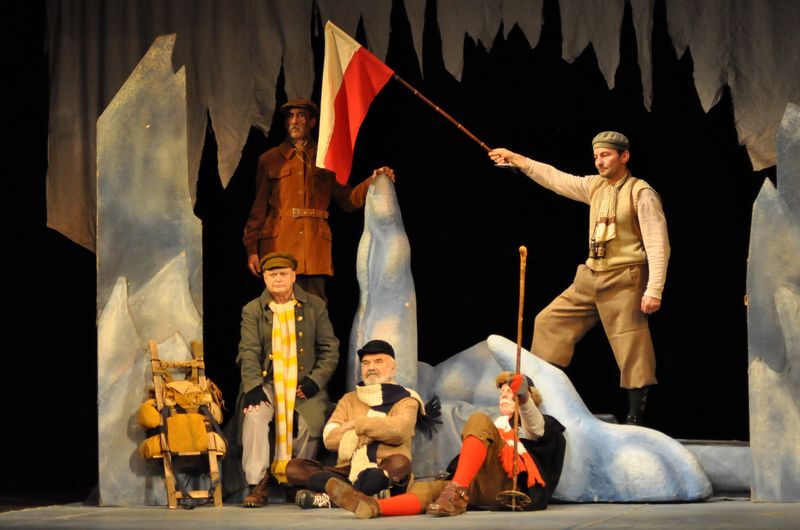
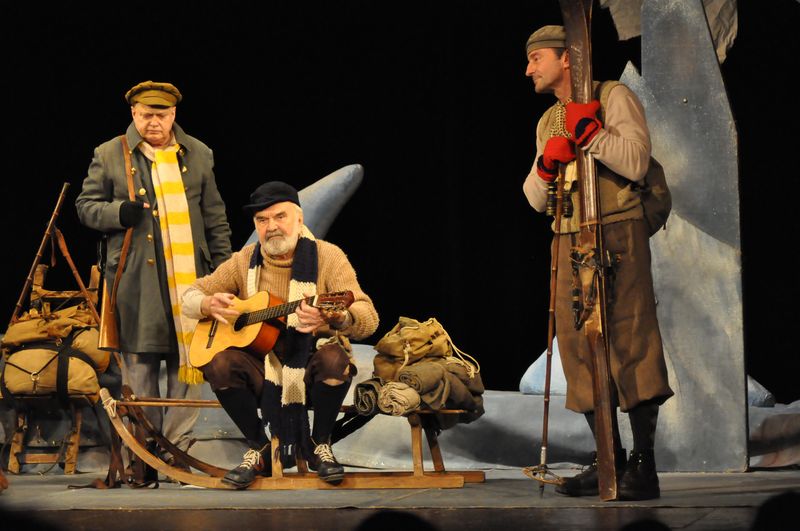
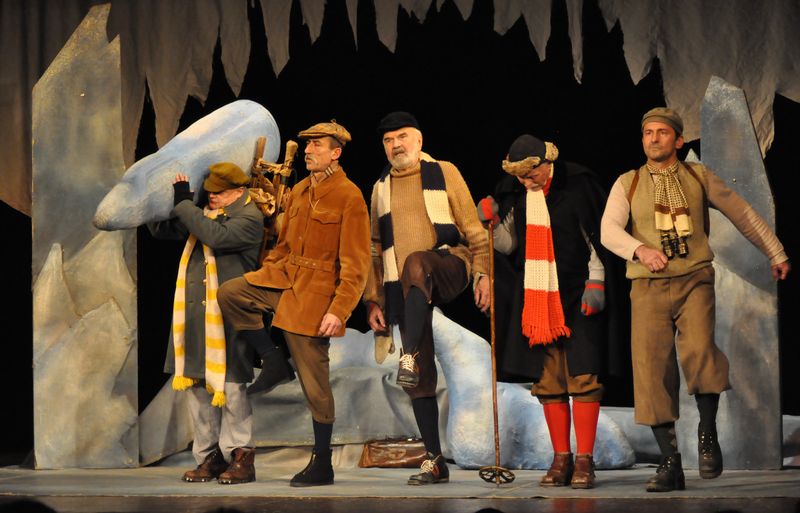
(This is one of the many scenes from the theater that has become popular. Everyone knows it. Or at least everyone who paid attention in school.)
The humor of the Svěrák – Smoljak duo is known not only by their theater audience, but also by film audiences. All of their films belong to the golden fund of Czech cinematography. Zdeněk Svěrák was equally successful in his creative tandem with his son, director Jan Svěrák. One of their joint films (the father as the screenwriter and actor of the leading role, the son as the director) is Kolja. This one won the Oscar for Best Foreign Language Film in 1997.
The fact that viewers share their sense of humor is also evidenced by the fact that, since November 2021, one bus stop near Náměstí Jiřího z Poděbrad has been named “At Prdlavka”. And we have the duo Svěrák – Smoljak to thank for that. Their movie Vrchní, prchni (Run, Waiter, Run) tells the story of a bookseller who earns extra money from guests by going around Prague restaurants in a dark suit as a fake head waiter. As a poor bookseller, he has no other car than a Velorex. (A Velorex was a three-wheeled cart designed for the needs of people with disabilities. It had a frame made of tubes and a canvas body. The carts were manufactured between 1951 and 1973; today, it is hard to imagine that anyone was willing to sit in one.)
The vehicle had a two-stroke engine that made a characteristic bubbling sound, reminiscent of farting (in Czech: prdění). This is why the neighbors in the house called the bookseller, Vrána, “Prdlavka”. Dalibor Vrána, the fake headwaiter from that very successful movie, lived in a house near the Rieger Gardens. And that is why in November 2021, the new bus line 101, around the corner from that house, was named “At Prdlavka”.






The station immediately gained tremendous popularity, which was also reflected in the fact that its information board was repeatedly stolen from the stop. Therefore, the Prague Public Transport Company put a paper copy of it on sale, and it immediately became the best-selling item in its e-shop.
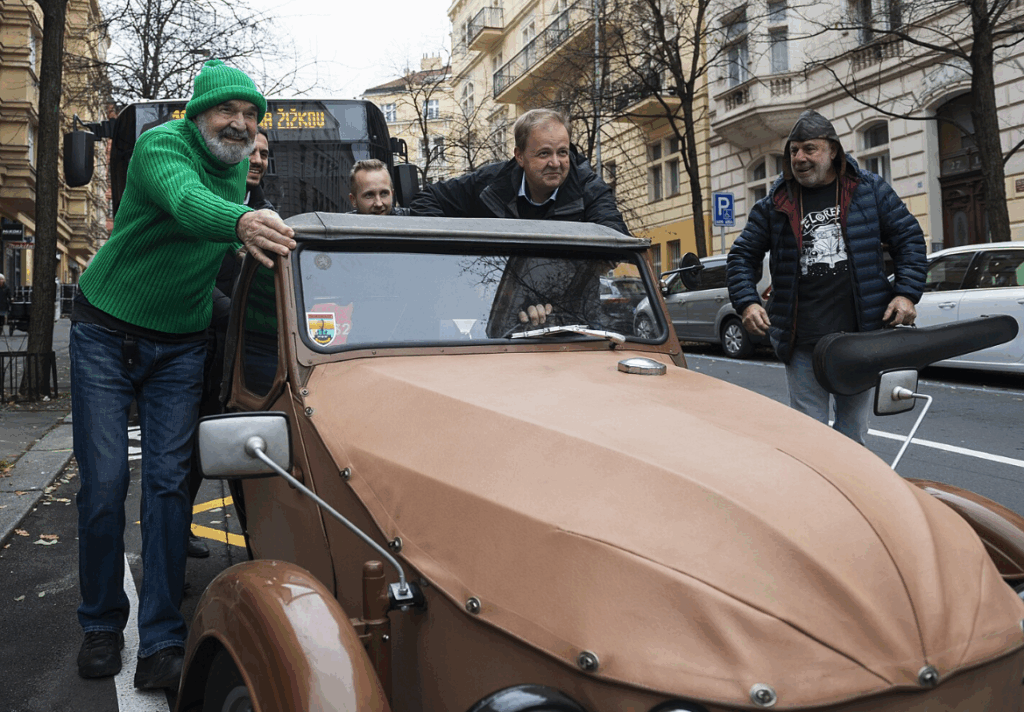
Zdeněk Svěrák and his Velorex at the grand opening of a new bus stop (his distinctive green sweater and hat are reminiscent of his costume in the movie).
Zdeněk Svěrák is not only one of the most significant people of Czech culture. For thirty years, he has been significantly helping people who have become wheelchair-bound after illness or spinal cord injury. When Jan Kašpar, one of the actors of the Jára Cimrman Theater, was injured in a fall from a tree and became immobile, it was the impetus for the foundation of the Paraple Center. (Paraple is a somewhat archaic term for an umbrella, in this case as a symbol that the center covers all services for wheelchair users.) Paraple is a non-governmental, non-profit organisation. Its prominent partner is Czech Television, which has broadcast the Charity Academy every year since 1994, during which people and large companies contributed to the construction and running of the center. This was the case every year until 2014, when Paraple joined forces with the dance competition Dancing with the Stars. One entire evening is dedicated to the Paraple Centre, where people and companies not only contribute, but wheelchair users also dance with the competition couples. Over thirty years of its existence, Paraple has gained great prestige; its services are used by 1,500 wheelchair users per year. On October 28, 2025, on the anniversary of the founding of the republic, President Petr Pavel awarded Zdeněk Svěrák the highest Czech decoration, the Order of the White Lion, Second Class, for particularly outstanding services to the state in the field of culture and art.
